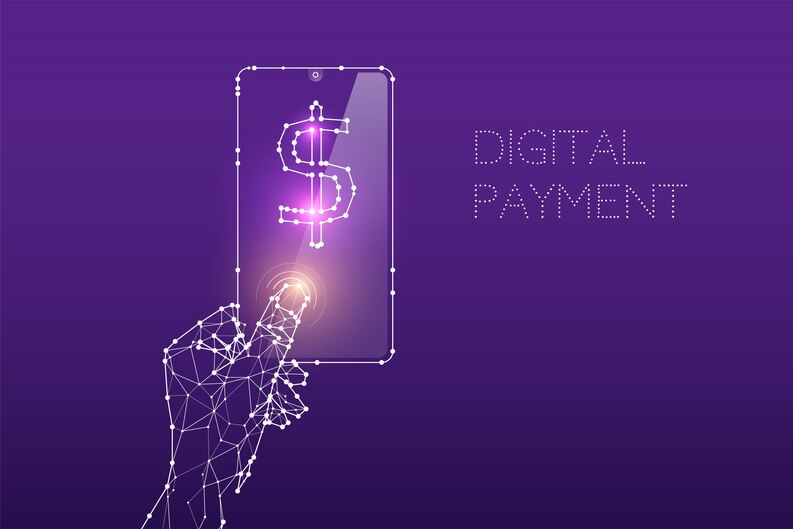Introduction

In the fast-evolving world of international trade, cross-border payments and currency exchange are experiencing a seismic shift. For Chinese exporters, traditional methods of receiving payments are giving way to cutting-edge solutions driven by blockchain, cryptocurrencies, and decentralized finance (DeFi). These technologies promise to make international transactions faster, cheaper, and more secure—a critical advantage in the highly competitive import-export business.
At USG, we stay at the forefront of these changes, ensuring our clients benefit from the latest innovations in cross-border payment systems. Here’s a closer look at how these advancements are transforming the landscape of global trade payments.
1. Blockchain Revolutionizing Cross-Border Payments

Blockchain technology is at the heart of the revolution in cross-border payments. By creating a decentralized and transparent ledger, blockchain eliminates the need for intermediaries such as banks, reducing transaction costs and delays.
Example: A Chinese exporter using blockchain-based platforms like Ripple or Stellar can receive payments from overseas clients almost instantly. Unlike traditional bank transfers that can take days and involve hefty fees, blockchain ensures seamless and cost-effective transactions
2. The Role of Cryptocurrencies in Global Trade

Cryptocurrencies are emerging as an alternative payment method in the export/import business. Bitcoin, Ethereum, and stablecoins like USDT are becoming popular among exporters due to their speed, security, and lack of dependency on traditional banking systems.
Why It Matters for Exporters:
- Faster Transactions: Payments via cryptocurrencies are processed 24/7, unlike traditional banking hours.
- Cost Savings: Cryptocurrencies cut out middlemen, reducing fees associated with currency exchange and banking.
Example: A Chinese exporter selling electronics to a buyer in Europe might choose to accept stablecoins like USDT. These cryptocurrencies are pegged to the value of fiat currencies, ensuring price stability while avoiding currency conversion fees.
3. Decentralized Finance (DeFi): A Game-Changer for Financing
Decentralized finance platforms are offering exporters new ways to access working capital and manage payments. By bypassing traditional banks, exporters can secure funding and settle transactions more efficiently.
Example: Using DeFi platforms, a Chinese textile exporter can secure a short-term loan in cryptocurrency to fulfill a large order. Once the goods are delivered, the exporter can repay the loan in crypto, all without relying on conventional bank loans.
4. The Rise of Global Digital Wallets
Global digital wallets like PayPal, Wise (formerly TransferWise), and Alipay are simplifying international payments for exporters. These platforms support multiple currencies, making it easier for businesses to transact with clients worldwide.
5. China’s Digital Yuan: A Catalyst for Global Trade

China’s digital yuan (e-CNY) is playing a pivotal role in shaping the future of cross-border payments. As one of the first central bank digital currencies (CBDCs), the digital yuan simplifies trade by providing a secure, fast, and government-backed payment option.
Why It’s Important:
- Efficiency: Instant settlements eliminate the delays associated with SWIFT and other traditional systems.
- Reduced Costs: The absence of intermediaries lowers transaction fees.
- Global Adoption: As China strengthens its trade partnerships, the digital yuan is expected to gain traction as a preferred payment method.
6. Fintech Companies Transforming Trade Payments
Fintech companies are at the forefront of innovation, offering solutions tailored to the needs of exporters. Platforms like Revolut, Payoneer, and Ant Financial are making cross-border payments seamless and accessible.
Example: A Chinese exporter using Payoneer can set up a virtual account to receive payments in multiple currencies. The funds can then be withdrawn or converted to yuan at competitive rates, streamlining cash flow management.
7. Challenges in Adopting New Payment Technologies
While the benefits of these innovations are clear, challenges remain:
- Regulatory Uncertainty: Governments worldwide are still formulating policies for blockchain and cryptocurrencies.
- Security Risks: Cybersecurity concerns need to be addressed to ensure safe transactions.
- Adoption Hurdles: Exporters need to invest in training and infrastructure to adopt these technologies.
8. How USG Supports Exporters in the Digital Age
At USG, we understand the challenges exporters face in adopting new payment technologies. We offer:
- Consultation on Blockchain and Digital Payments: Helping businesses transition to modern systems.
- Partnerships with Fintech Leaders: Ensuring our clients have access to the best payment platforms.
- Training and Support: Equipping exporters with the knowledge to navigate digital payments confidently.
Conclusion: Embrace the Future of Payments

The future of cross-border payments and currency exchange is here, and it’s reshaping the way Chinese exporters do business. By leveraging blockchain, cryptocurrencies, DeFi, and digital wallets, exporters can unlock new efficiencies and opportunities. At USG, we’re committed to helping businesses stay ahead of these trends, ensuring seamless and secure international trade transactions.
If you’re ready to revolutionize your cross-border payment processes, contact USG today to learn how we can help you navigate the digital trade landscape in 2024.



